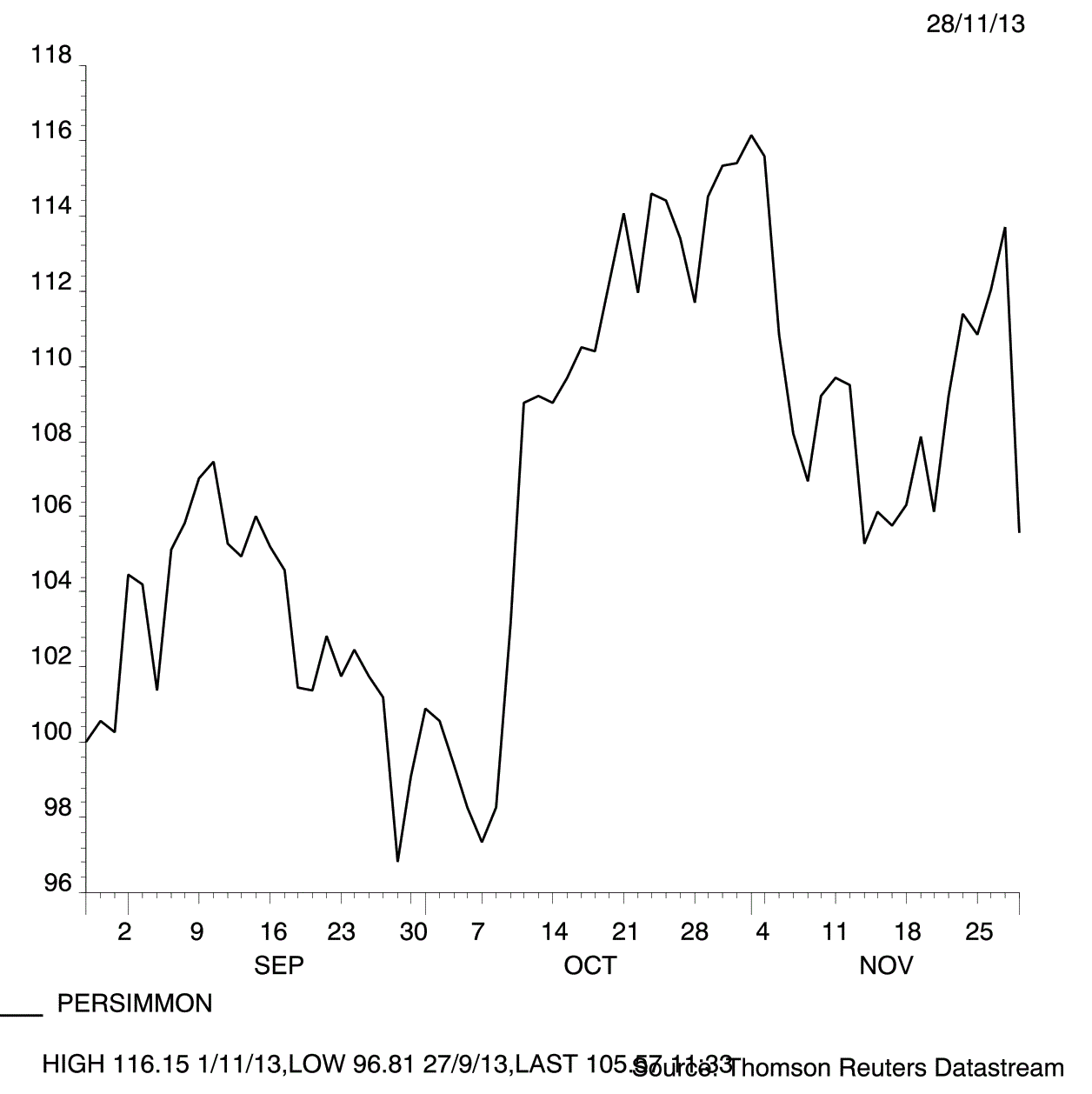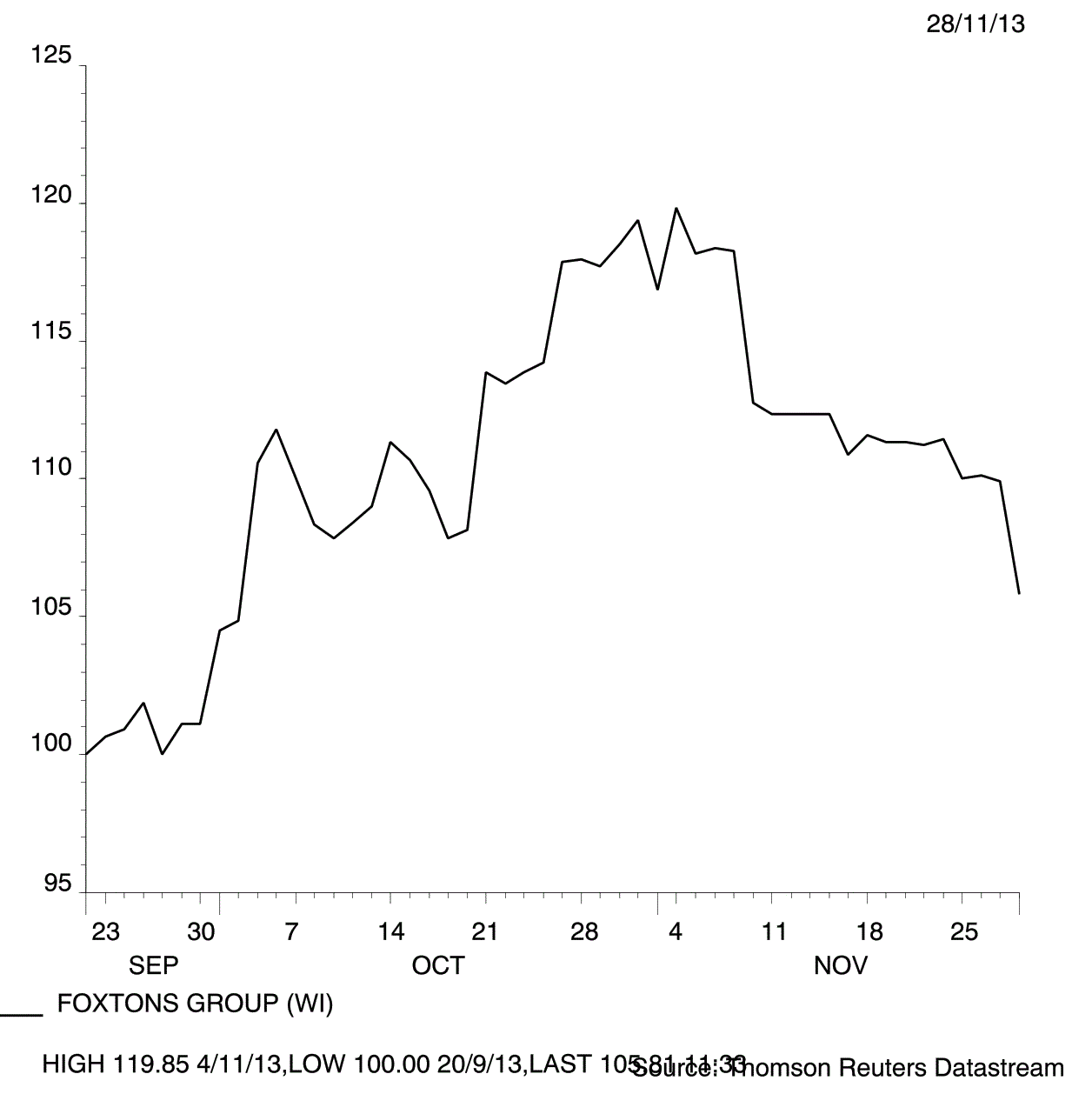Shares in the construction sector are in freefall as the Bank of England says the Funding for Lending (FLS) scheme will no longer be aimed at housebuilders. Governor Mark Carney says an overheated housing market would be a risk to the economy.
This shock announcement causes the sector's main constituents to drop between 4% and 7% in value, wiping millions of pounds from their market caps. Persimmon (PSN) drops 7.5% to £11.53; Taylor Wimpey (TW.) slumps 7.1% to 106.4p; and Bovis Homes (BVS) falls 5.4% to 778.5p.
The funding scheme will now be focused on small firms that still find it hard to borrow money. It was set up in July 2012 to help increase lending to home buyers and businesses. The change in strategy will happen in January and could see banks become less willing to lend for home purchases.
The news has affected several other sectors. Shares in estate agents are down with Foxtons (FOXT) falling 1.9% to 288p and Countrywide (CWD) dipping 0.5% to 532.5p. DIY expert Travis Perkins (TPK) drops 2.7% to £17.82 and Homebase-owner Home Retail (HOME) declines 1.1% to 192p.
In a joint announcement, the Bank of England and HM Treasury state: 'Although the growth in household loan volumes remains modest, activity in the housing market is picking up and house price inflation appears to be gaining momentum. As a result there is no longer a need for the FLS to provide further broad support to household lending. The changes we are making have no implications for HM Government?s Help to Buy scheme, which is designed to address the specific issue of access to mortgages for borrowers without large deposits, unlike the FLS which was designed to boost lending more generally.'
While housebuilders' reaction to the news was rather acute, the response from mortgage lenders has been rather more measured.
The Council of Mortgage Lenders (CML) - which representing banks and building societies - describes the withdrawal of lender access to the scheme for mortgage lending as a 'surprise but not a shock'.
'Mortgage lenders are well equipped to meet their funding needs, as wholesale funding market conditions have improved and retail deposits are robust,' says CML director general Paul Smee.
Brian Murphy, who heads up lending at the Mortgage Advice Bureau (MAB) also takes a philosophical view of the announcement: 'The Bank of England?s decision to withdraw the Funding for Lending Scheme from the mortgage market from January will clearly impact mortgage rates, but it should also ensure a measure of calm going into 2014,' he says.
Speaking after the latest Land Registry data revealed a measured rise in house prices this year - with an annual change of 3.1% bringing the average house price in England and Wales to £165,515 - Murphy points out that property prices are still returning from a low base brought about by the 2007 recession. 'This rise is far from meteoric and the news that house prices are down 0.2% month-on-month should help to quell fears of excessive price inflation,' he explains.
MAB's Murphy reckons the separate Help to Buy scheme will 'ensure demand and consumer confidence continues to grow in the wake of FLS, while a responsible attitude to lending and a watchful eye from the Bank of England will continue to nurture the seeds of recovery seen this year.'
The Home Builders Federation seems to echo this view in a statement that reads: 'The economy is in a much stronger position than when the Funding for Lending scheme was introduced and lenders are now much more able to meet the funding requirements of home buyers. In addition the Help to Buy equity loan scheme is now in place and is driving sales and stimulating higher levels of house building,'
Sean Flynn also contributed to this article




